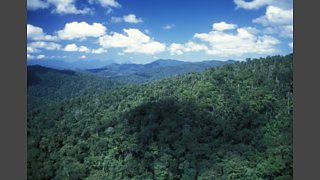Green Thinking: how we see nature
From whales going on their holidays to the value of bees, can a better understanding of nature impact the climate emergency? A dramatist and a philosopher discuss.
Should we consider nature economically, socially, spiritually or culturally? What is the financial worth of bees? And do whales value each other? Dr Rupert Read and Professor Steve Waters explore how humans value nature and how that can impact climate change, whether that’s setting a play in a nature reserve, or considering the fact that whales go on holiday.
Dr Rupert Read is an Associate Professor of Philosophy at the University of East Anglia, and a climate and environmental campaigner. You can find out about Rupert’s work, including his blog posts, videos and upcoming public events, here: https://rupertread.net/
Professor Steve Waters is a Professor of Scriptwriting at the University of East Anglia, and has written numerous plays on climate change and human relationships with nature. He is also an AHRC Leadership fellow working on the project, ‘The Song of the Reeds: Dramatising Conservation’ in collaboration with Wicken Fen and Strumpshaw Fen nature reserves. You can listen to his seasonal drama, ‘Song of the Reeds’, which was produced in four parts for Radio 4 and features Sophie Okonedo and Mark Rylance, here: /programmes/m000x6pk
Professor Des Fitzgerald is a New Generation Thinker based at the University of Exeter.
You can find the podcast series Green Thinking: 26 episodes 26 minutes long in the run up to COP26 made in partnership with the Arts and Humanities Research Council, part of UKRI, exploring the latest research and ideas around understanding and tackling the climate and nature emergency. New Generation Thinkers Des Fitzgerald and Eleanor Barraclough will be in conversation with researchers on a wide-range of subjects from cryptocurrencies and finance to eco poetry and fast fashion.
The podcasts are all available from the Arts & Ideas podcast feed - and collected on the Free Thinking website under Green Thinking where you can also find programmes on mushrooms, forests, rivers, eco-criticism and soil. /programmes/p07zg0r2
For more information about the research the AHRC’s supports around climate change and the natural world you can visit: Responding to climate change – UKRI or follow @ahrcpress on twitter. To join the discussion about the research covered in this podcast and the series please use the hashtag #GreenThinkingPodcast.
Producer:
Sofie Vilcins
Featured in...
![]()
Green Thinking—Free Thinking
New thinking on the environment
Podcast
-
![]()
Arts & Ideas
Leading thinkers discuss the ideas shaping our lives.



